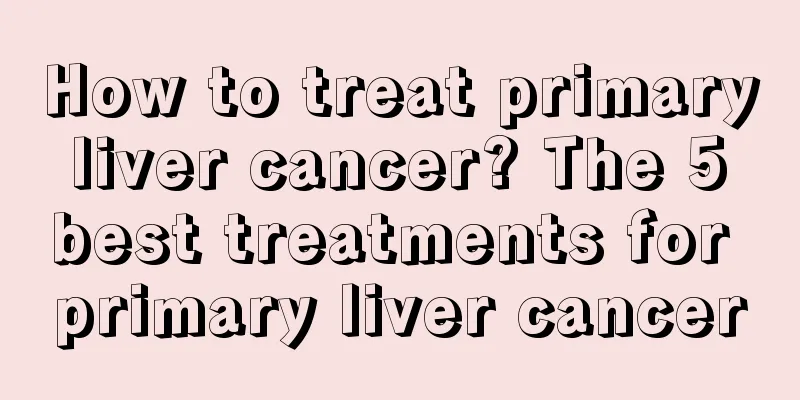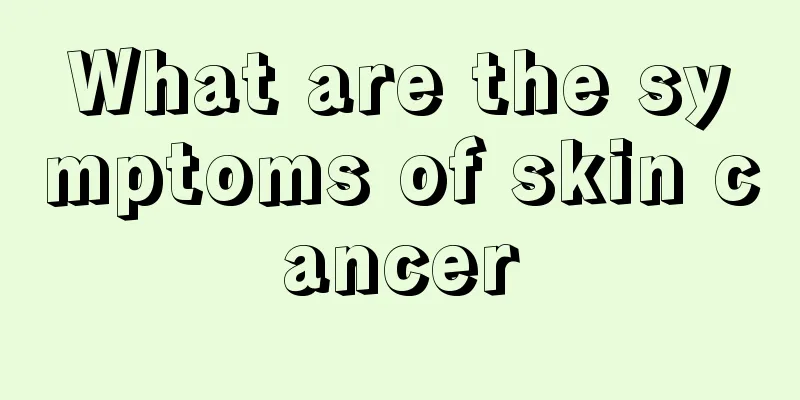How to treat primary liver cancer? The 5 best treatments for primary liver cancer

|
Primary liver cancer is actually a relatively common malignant tumor, and this disease often occurs in people between the ages of 40 and 50. Therefore, we must pay attention to the treatment and actively proceed with it. Common treatments include surgery, radiotherapy, and chemotherapy. 1. Surgery Surgery is the first choice and the most effective method for treating liver cancer. Surgical methods include radical liver resection, palliative liver resection, etc. 2. Treatment of unresectable liver cancer For liver cancer that cannot be removed, treatments such as intraoperative hepatic artery ligation, hepatic artery chemoembolization, radiofrequency, cryosurgery, laser, and microwave can be used according to specific circumstances and have certain effects. Primary liver cancer is also one of the indications for liver transplantation. 3. Chemotherapy If the laparotomy reveals that the tumor cannot be removed, or as a follow-up treatment for palliative tumor resection, regional chemoembolization can be performed by placing a pump (subcutaneous buried perfusion device) in the hepatic artery and/or portal vein. For those who are estimated to be unresectable by surgery, radiological intervention can also be performed, with selective cannulation through the femoral artery to the hepatic artery, and injection of embolic agents (commonly used such as iodized oil) and anticancer drugs for chemoembolization. Some patients may therefore have the opportunity for surgical resection. 4. Radiation therapy For patients with good general condition, good liver function, no cirrhosis, no jaundice, ascites, hypersplenism and esophageal varices, relatively localized cancer, no distant metastasis, and who are not suitable for surgical resection or have recurrence after surgery, comprehensive treatment with radiation as the main method can be used. 5. Biological treatment Commonly used ones include immune RNA, interferon, interleukin-2, thymosin, etc., which can be used in combination with chemotherapy. 6. Treatment with traditional Chinese medicine The method of syndrome differentiation and treatment, combined with attack and supplement, is often used in conjunction with other therapies to enhance the body's resistance to disease, improve overall condition and symptoms, and reduce adverse reactions to chemotherapy and radiotherapy. |
<<: How to care for lung cancer patients? Introduction to nursing methods for lung cancer patients
>>: What are the effective treatments for lung cancer? Four common methods for treating lung cancer
Recommend
What medicine is effective quickly for insufficient blood supply to the brain?
Cerebral arteries play an extremely important rol...
Possibility of curing endometrial cancer
The possibility of curing endometrial cancer depe...
What is the more reliable way to treat pituitary tumors
What is the more reliable treatment for pituitary...
Is cor pulmonale serious? You should know these things
Cor pulmonale is a disease caused by disease of t...
How to prevent bladder cancer
Prevention is better than cure, and this also app...
Stomach cramps and cramps
Many people often have gastrointestinal problems,...
What is the reason for frequent dizziness and tinnitus
If symptoms such as dizziness and tinnitus occur ...
The most effective way to relieve chickenpox itching and prevent scratching of scabs
Chickenpox can cause itching of the skin, making ...
Is there a cure for undifferentiated nasopharyngeal carcinoma?
Is there a cure for undifferentiated nasopharynge...
What liver cancer tests should be done? Four tests you must know to rule out liver cancer
When we feel that we have early symptoms of liver...
What supplements should be given during confinement?
When there is a female friend around you who is i...
Aquatic plants that purify water
If the water in the lake is not managed regularly...
Why does the human body become infected by viruses?
The human body is a complex whole, similar to the...
Why is my stomach so hard when I press it
Some people often find that their stomachs are ha...
How to store lettuce for a long time
Compared with other vegetables, lettuce has a ver...









